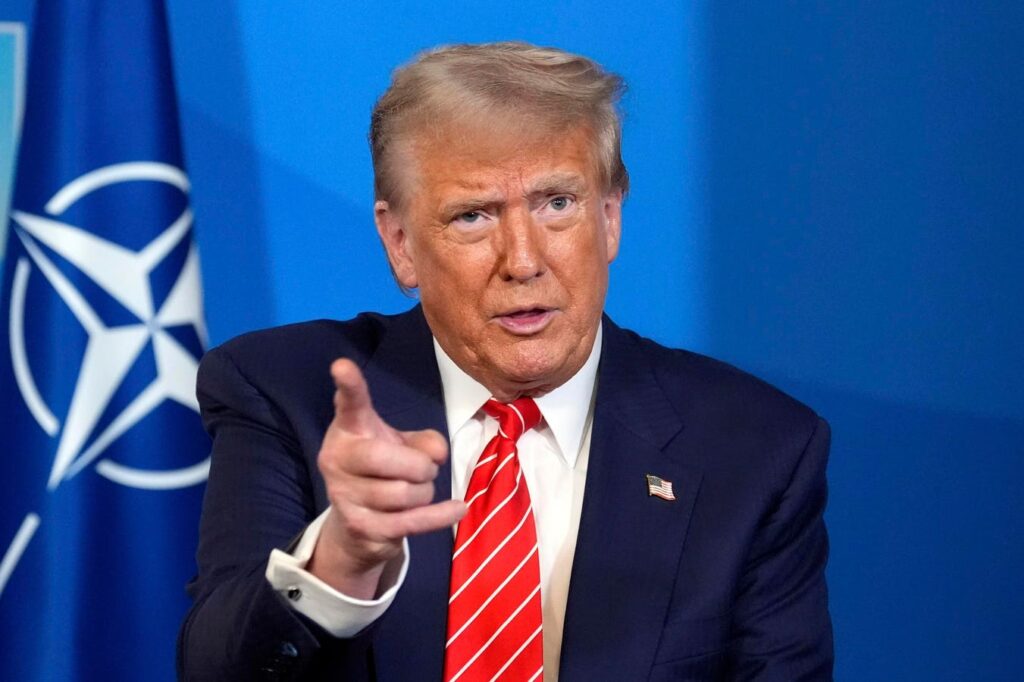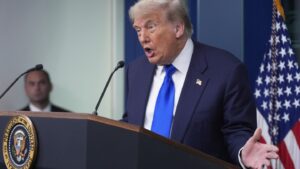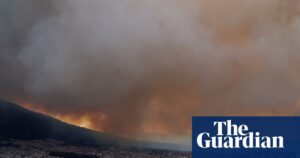
President Donald Trump, speaking ahead of a NATO summit in the Netherlands, asserted that recent U.S. bombings led to the “complete obliteration” of Iran’s nuclear sites, effectively ending the ongoing conflict between Iran and Israel. This statement comes amidst contrasting intelligence reports suggesting that the strikes only set back Iran’s nuclear program by a few months.
Addressing reporters in The Hague, Trump reiterated the effectiveness of the bombings, despite an intelligence assessment indicating minimal damage. “The intelligence says we don’t know…It could have been very severe,” Trump remarked, dismissing the report as “very inconclusive.”
Conflicting Reports and Reactions
Trump’s assertions were met with skepticism as reports from the New York Times and CNN suggested that the damage was not as extensive as claimed. In response, Trump took to Truth Social, declaring, “THE NUCLEAR SITES IN IRAN ARE COMPLETELY DESTROYED! BOTH THE TIMES AND CNN ARE GETTING SLAMMED BY THE PUBLIC!”
Steve Witkoff, the president’s Special Envoy to the Middle East, appeared on Fox News to support Trump’s claims, stating, “We put 12 bunker buster bombs on Fordow. There’s no doubt that it breached the canopy…and there’s no doubt that it was obliterated.” Witkoff condemned the leaks of information as “outrageous” and “treasonous,” calling for accountability.
International and Domestic Responses
Iranian Foreign Minister Abbas Araghchi, speaking to Al-Araby al-Jadeed, warned that Iran would not return to negotiations if U.S. “aggression” continued. Meanwhile, Israel’s military chief, Eyal Zamir, stated that Israel’s campaign against Iran was not over, although a significant phase had concluded, shifting focus back to Gaza.
Trump, before departing for the NATO summit, criticized both Israel and Iran for ceasefire violations, expressing frustration over the ongoing hostilities. “We basically have two countries that have been fighting so long and so hard that they don’t know what the f*** they’re doing,” he commented.
Ceasefire and Continued Tensions
Despite Trump’s announcement of a “Complete and Total CEASEFIRE,” tensions remain high. Iranian state media denied Israel’s claims of further attacks post-ceasefire, while Israel’s Defense Minister, Israel Katz, instructed the IDF to respond forcefully to any violations by Iran.
In a series of posts, Trump insisted that both sides would “remain PEACEFUL and RESPECTFUL,” thanking Iran for “giving us early notice” of counterstrikes. However, the situation remains volatile, with U.S. cities on alert and international condemnation of the strikes.
Global Reactions and Implications
The U.S. strikes have drawn criticism from global powers. Russian President Vladimir Putin condemned the actions as an “absolutely unprovoked act of aggression,” while China’s foreign ministry stated that the strikes “seriously violate the purposes and principles of the UN Charter and international law.”
According to NBC News, Iran reportedly warned Trump through an intermediary about potential terror attacks inside the U.S., should tensions escalate further. This development underscores the fragile nature of the current ceasefire and the potential for further conflict.
The situation remains fluid, with further assessments and diplomatic efforts likely to shape the future of U.S.-Iran relations. As the international community watches closely, the implications of these strikes and the subsequent reactions could have lasting impacts on Middle Eastern stability.





